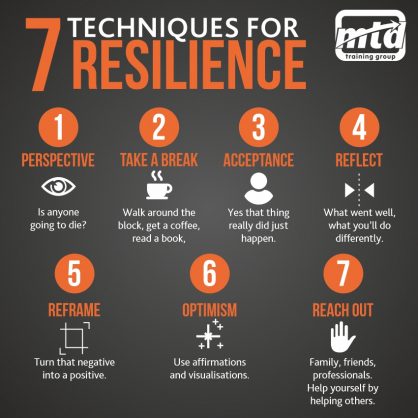Developing Resilience: A Pathway To Better Mental Wellbeing

Table of Contents
Understanding Resilience and its Importance
Resilience is the ability to bounce back from adversity, trauma, and stress. It's not about avoiding hardship, but about adapting and coping effectively in the face of challenges. Developing strong resilience is crucial for your mental health, acting as a buffer against the negative impacts of stressful life events. A resilient individual possesses the mental fortitude to navigate difficult situations and emerge stronger on the other side.
Resilience helps you manage stress, adversity, and even trauma by:
- Reduces the impact of stressful life events: Resilience helps minimize the emotional toll of difficult experiences.
- Promotes faster recovery from setbacks: Resilient individuals tend to recover more quickly from disappointments and failures.
- Enhances emotional regulation: Resilience equips you with better tools to manage and understand your emotions.
- Improves overall mental wellbeing: Building resilience contributes to a greater sense of well-being and life satisfaction.
- Strengthens coping mechanisms: Resilience helps you develop and utilize effective coping strategies to handle stress.
Practical Strategies for Building Resilience
Building resilience is a proactive process involving several key strategies. By consistently implementing these practices, you can significantly enhance your ability to withstand and overcome life's difficulties.
Cultivating a Positive Mindset
A positive mindset is foundational to developing resilience. This involves consciously challenging negative thoughts and replacing them with more constructive and optimistic ones.
- Challenge negative thoughts: When faced with negative self-talk, actively challenge its validity. Is it truly accurate? Is there a more balanced perspective?
- Practice affirmations: Repeat positive statements to yourself regularly to reinforce a positive self-image.
- Keep a gratitude journal: Regularly writing down things you're grateful for can shift your focus towards the positive aspects of your life.
- Engage in mindfulness exercises: Mindfulness techniques, such as meditation, can help you become more aware of your thoughts and emotions without judgment. This increased self-awareness is a crucial component of building resilience. Practicing mindfulness promotes emotional regulation and reduces stress.
Building Strong Social Connections
Strong social support is a vital protective factor against stress and adversity. Meaningful relationships provide a sense of belonging, emotional support, and practical assistance during challenging times.
- Nurture existing relationships: Invest time and effort in maintaining and strengthening your relationships with family and friends.
- Join social groups or clubs: Participating in activities with shared interests can expand your social circle and provide a sense of community.
- Seek professional support when needed: Don't hesitate to reach out to therapists or counselors for guidance and support. Professional help can be particularly valuable when dealing with significant trauma or mental health challenges.
- Connect with your community: Volunteering or participating in community events can foster a sense of connection and purpose.
Developing Healthy Lifestyle Habits
Your physical health is inextricably linked to your mental wellbeing and resilience. Adopting healthy lifestyle habits provides a strong foundation for coping with stress and adversity.
- Engage in regular physical activity: Exercise releases endorphins, which have mood-boosting effects. Aim for at least 30 minutes of moderate-intensity exercise most days of the week.
- Eat a nutritious diet: Nourishing your body with a balanced diet provides the energy and nutrients needed to cope with stress.
- Prioritize sufficient sleep: Aim for 7-9 hours of quality sleep per night to allow your body and mind to rest and recover.
- Limit alcohol and substance use: Substance use can exacerbate mental health problems and impair your ability to cope with stress.
Identifying and Overcoming Barriers to Resilience
Several factors can hinder the development of resilience. Recognizing and addressing these barriers is crucial for building greater resilience.
- Past trauma or adverse experiences: Past trauma can significantly impact your ability to cope with future challenges. Seeking professional help to process past trauma is essential.
- Negative self-beliefs: Negative self-talk and low self-esteem can undermine your ability to bounce back from setbacks. Cognitive behavioral therapy (CBT) can help challenge and change negative thought patterns.
- Lack of social support: A lack of strong social connections can leave you feeling isolated and vulnerable during difficult times. Actively building and nurturing relationships is crucial.
- Underlying mental health conditions (e.g., anxiety, depression): Untreated mental health conditions can significantly impair resilience. Seeking professional diagnosis and treatment is essential.
Conclusion
Developing resilience is a journey, not a destination. By cultivating a positive mindset, building strong social connections, adopting healthy lifestyle habits, and overcoming barriers, you can significantly improve your mental wellbeing and navigate life's challenges with greater ease. Remember, building resilience is a proactive process that empowers you to take control of your mental health and thrive.
Call to Action: Start building your resilience today! Implement the strategies outlined in this article and take steps towards a more resilient and fulfilling life. Learn more about developing resilience and discover additional resources to support your mental wellbeing journey.

Featured Posts
-
 Cote D Ivoire Bcr Operation De Controle Surprise Dans Les Marches Abidjanais
May 20, 2025
Cote D Ivoire Bcr Operation De Controle Surprise Dans Les Marches Abidjanais
May 20, 2025 -
 Todays Nyt Mini Crossword Solutions March 27
May 20, 2025
Todays Nyt Mini Crossword Solutions March 27
May 20, 2025 -
 Paulina Gretzkys Husband Joins Her For A Rare Outing
May 20, 2025
Paulina Gretzkys Husband Joins Her For A Rare Outing
May 20, 2025 -
 Abidjan La Bcr Intensifie Ses Controles Dans Les Marches
May 20, 2025
Abidjan La Bcr Intensifie Ses Controles Dans Les Marches
May 20, 2025 -
 Cliff Richard Musical By Lucas And Walliams Faces Unexpected Obstacle
May 20, 2025
Cliff Richard Musical By Lucas And Walliams Faces Unexpected Obstacle
May 20, 2025
